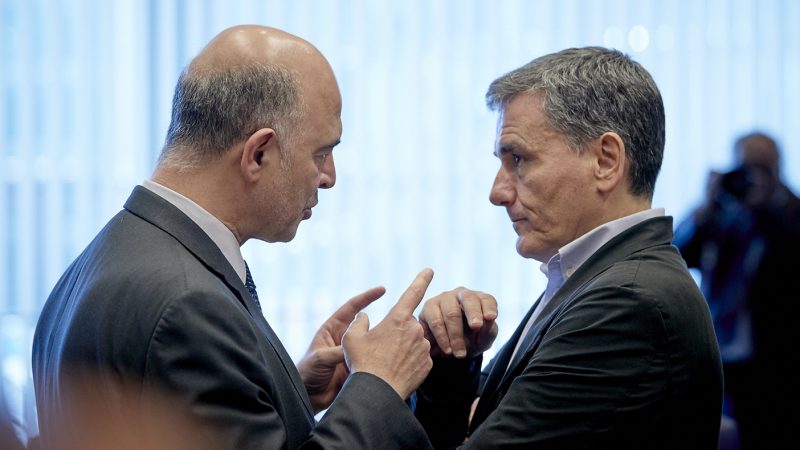In his article for daily newspaper Kathimerini (24.06.2018, in Greek), business journalist Kostas Kallitsis provides a brief and to the point analysis on what the 22 June Eurogroup deal on debt relief means for Greece. Kallitsis argues that the deal makes it easier for Greece to repay its loans, and most imporantly, clears up a 10-year-long passage that’s free from the heavy burden of loan repayments, so that the country can pursue a dynamic economic growth. Furthermore, he posits that extreme reactions against the “very strict budgetary surveillance” and the “unsustainable 2.2% GDP primary surpluses” are ludicrous and irresponsible.
What does the Eurogroup decision provide? (a) That until 2033 we will not pay either interest or amortization for loans of € 100 billion received under the second financial program, while the repayment period is extended by 10 years; (b) With € 15 billion in fresh loans added to the € 6 billion accumulated, a cash buffer is created that is sufficient for all our financing needs until mid 2020, even if we do not access financial markets; (c) That we receive € 4.8 billion, in eight installments by June 2022, from profits made by Eurozone central banks on their Greek bond portfolios; and (d) the elimination of the step-up interest rate charged on second bailout loans.
What does this decision mean? (a) With GDP growth and primary surpluses, we will be able to repay the loans. Repayment is our job, and the Eurogroup decision makes it easier for us to do so; (b) Cheap lending is over for us. With our cash buffer as a safety net until international firms upgrade us to investment grade (around the end of 2019) and then, with our credibility as the only guarantee, we will need to borrow from financial markets with tolerable interest rates; (c) Most importantly: A 10-year-long passage that’s free from the heavy burden of loan repayments (since the repayment of € 60 billion in loans from the third adjustment program will begin in 2034) to pursue a dynamic economic growth. This is the huge challenge.
I consider the opposition’s holy rage as regards the very strict budgetary surveillance ludicrous. Of course there will be supervision. Firstly, because we needed huge loans – in the order of € 250 billion, while Cyprus took about € 10 and Portugal € 78 billion; Secondly, because we are the only country that shook its international credibility with those false figures in 2009 (persecuting in fact him the person who has been charged with restoring them, while honoring those who have falsified them), with the irresponsible rabble-rousing and divisive rhetoric of the following years, and with the obvious (still going) momentum towards clientelist policies. There will certainly be strict supervision, without the extremities of the Troika though. It’swelcome.
I also find those shouts and screams against the ‘unsustainable 2.2% GDP primary surpluses’ irresponsible. Obviously, it is difficult to combine primary surpluses (hence a relatively tight fiscal policy) with the pursuit of strong economic growth. It is also true that surplus amounts result from the conditions that (theoretically at least) apply to all Eurozone countries. My argument however is that we should be achieving relatively high surpluses even if we were not obliged by the Treaties, because if Greece does not reduce its debt, then over-indebtedness will eradicate its growth efforts.

Translation: Magda Hatzopoulou













